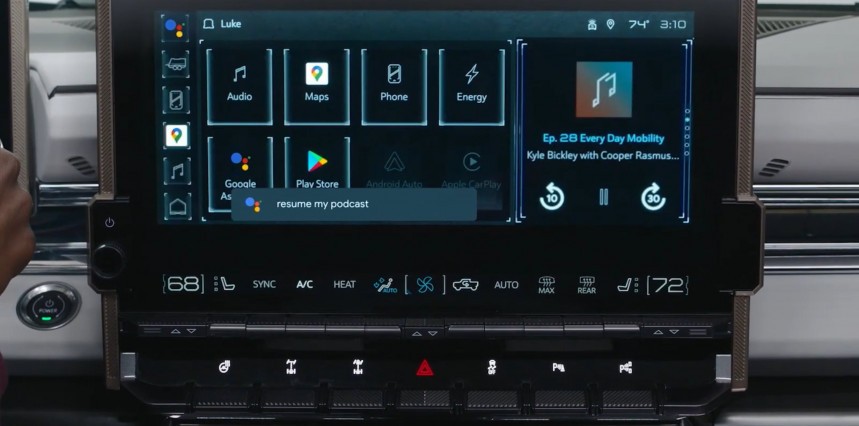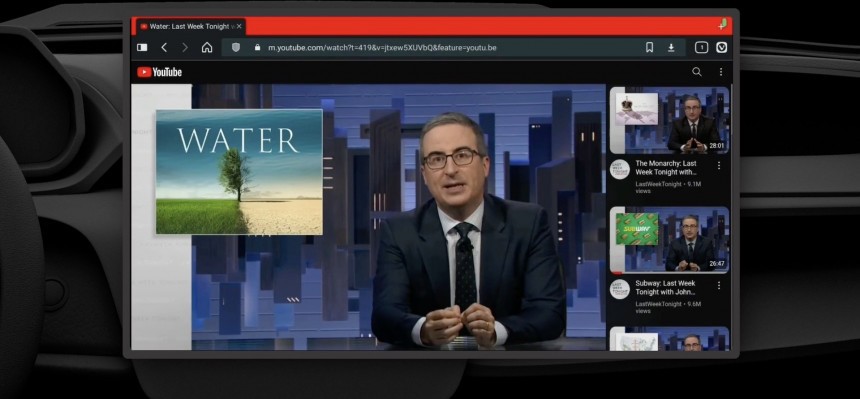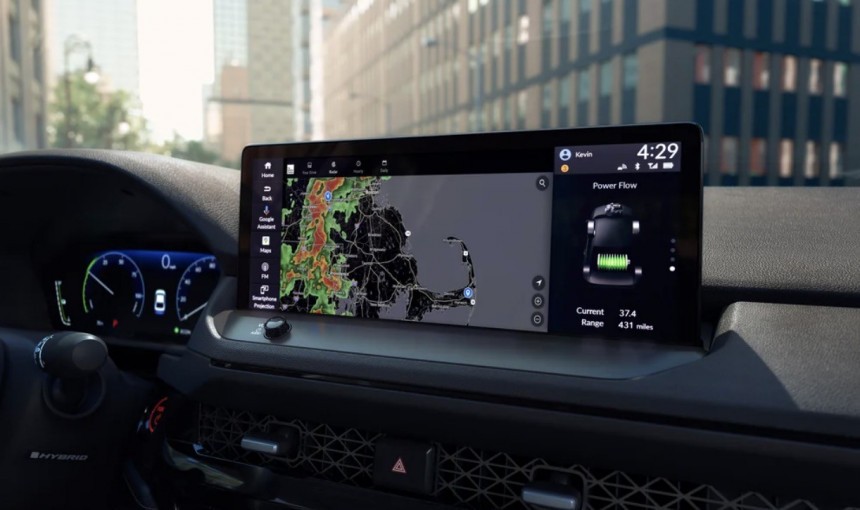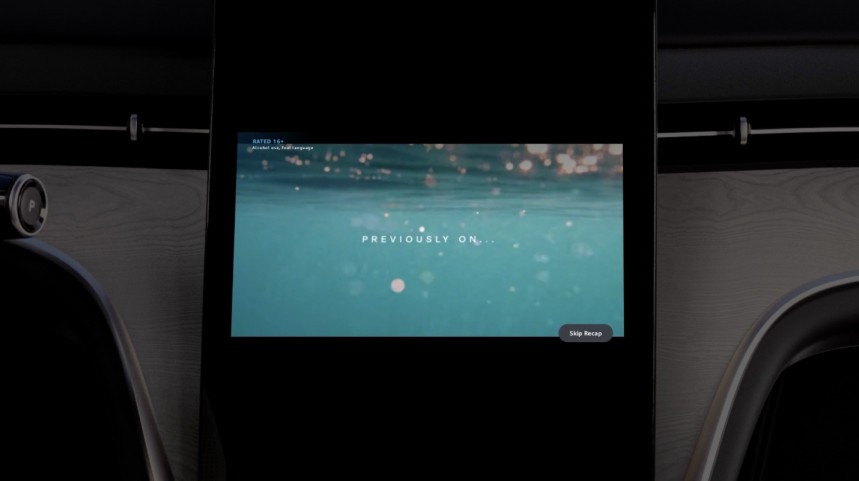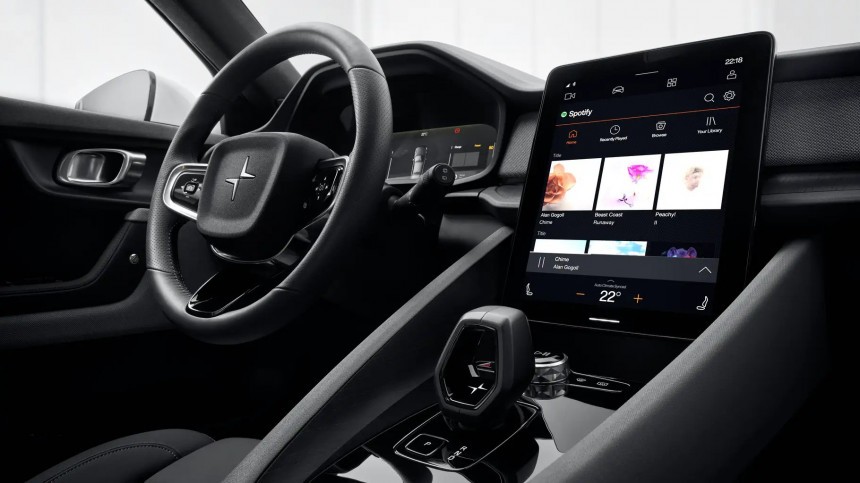[ad_1]
Considering the carmaker plans to drop combustion engines by 2035, it’s a matter of time until Android Auto and CarPlay become distant memories for General Motors.
The carmaker has tried to defend its controversial strategy on multiple occasions, sometimes only fueling the criticism and proving exactly the opposite: Android Auto and CarPlay are here to stay, and GM’s strategy could easily backfire.
GM’s executives said the transition to Android Automotive was the only way to offer more advanced functionality behind the wheel. While this is true, as Android Auto and CarPlay are limited by the connection between the infotainment system and the mobile device, Android Automotive doesn’t have to be the sole option in a car.
Polestar already proved that Android Automotive, CarPlay, and Android Auto can live under the same roof. GM’s reasoning sidesteps the subscription strategy, as many believe the all-in bet on Android Automotive is a way for the carmaker to turn the infotainment system into a money-making machine.
But leaving aside the hidden long-term goals, GM’s strategy is unlikely to work for different reasons, including the lack of transparency and the failure to properly communicate with customers how the switch to Android Automotive would improve their experience versus Android Auto and CarPlay.
“Don’t try to dogmatically educate your customers.”
These are the words of Polestar’s CEO, who commented on GM’s strategy to enforce Android Automotive in its cars.
Polestar offers Android Auto and CarPlay side-by-side with Android Automotive, so customers can decide what they want to use when they get behind the wheel. The CEO explained that customers must have “the choice,” as it’s essential for drivers to always use what they want when turning on the engine.
Thomas Ingenlath is right. While I don’t believe in the old saying claiming the “customer is always right,” you shouldn’t enforce a specific system by killing off a solution you’ve been praising for years.
Most carmakers adopted Android Auto and CarPlay to deal with their ridiculously lazy software efforts. After giving in to Google and Apple for years, they’re not trying to reclaim infotainment control, especially as they discovered that software and subscriptions can bring home the bacon.
Customers are smarter than GM’s think.
While GM claims the reason for dropping Android Auto and CarPlay is their limited functionality, customers can always read between the lines and decipher the hidden message.
With the automotive world slowly but surely migrating to a subscription-based model, it was time for General Motors to adopt a similar direction. However, hiding this strategy behind a seemingly commendable attempt to provide drivers with more advanced features is the wrong way to do it.
Not long ago, our reader Michael described the whole thing as a “trap.”
“If people fall into this trap, it’s just a matter of time before everything on your car will be subscription-based, from windshield wipers to AC to heated seats. Don’t do it, people. Refuse any and all subscription-based services on any car you buy, or suffer the consequences later on,” he said in a comment posted to another story.
Not everybody is a Google user.
Android Automotive is a Google product, so you need a Google account to make the most of this platform.
It might sound like a huge surprise to GM, but not everybody is a Google user. While Google is the world’s number one search engine, not everybody owns a Google account.
Some people even use Bing, Microsoft’s search engine, DuckDuckGo, or other alternatives because they don’t want to stick with Google. The reasons are varied, and I won’t delve into them today, but many are related to Google and its obsession with data.
These customers are very unlikely to become GM customers now that Android Automotive is becoming the only option in its cars. Apple users are also unlikely to become huge fans of Android Automotive, especially as many Android users switched to the iPhone specifically to be a part of the Apple ecosystem.
Everybody is familiar with Android Auto and CarPlay.
Android Automotive may offer more advanced functionality, but not everybody wants to learn to use it. Android Auto and CarPlay have been around so long that most drivers are familiar with their main features.
Using Android Auto and CarPlay is extremely convenient. All it takes is connecting your smartphone to the head unit, and voila, you’re already prepared to run Google Maps, Waze, and Spotify.
Richard Craig Friedman commented in a different story that they’re ready to give up on GM if they had to learn a new OS.
“If given a choice between two comparable vehicles, one of which allows me to use my phone, which I already understand and am comfortable with, and the other which does not allow me to use my phone and requires me to learn a whole new system, I will go with the vehicle that is not GM,” he said.
Don’t assume you know better than your customers.
GM’s strategy is based on the assumption that customers won’t know what they’re missing until they try it. If Android Auto and CarPlay remain the only choices in a car, customers will use them because they’re already familiar with them.
The strategy can easily backfire. In 2012, tech giant Microsoft tried a similar approach with Windows 8. The new operating system was the first Windows version to launch without a Start menu and a Start button.
Microsoft introduced a tablet- and touch-optimized Start screen to replace the Start menu. Due to user criticism, the company brought back the Start button in Windows 8.1 but decided to stick with the Start screen. The next release was Windows 10, which included a Start menu and confirmed that Microsoft’s strategy failed.
Company executives later admitted that offering a Start screen side by side with the familiar Start menu wouldn’t have worked because everybody was familiar with the latter. Nobody would have discovered the Start screen, so Microsoft adopted an aggressive strategy that included removing a familiar feature.
GM’s plan is similar. The carmaker will ditch Android Auto and CarPlay because it wants drivers to use Android Automotive. It can’t give them the choice because many will stick with what they’re already familiar with.
Time will tell if GM’s strategy succeeds or becomes a flop. For now, customers aren’t willing to give up, but as the saying goes, time heals all wounds. If this happens, we should prepare for a new driving experience that blocks everything behind a paywall.
[ad_2]
Source link
